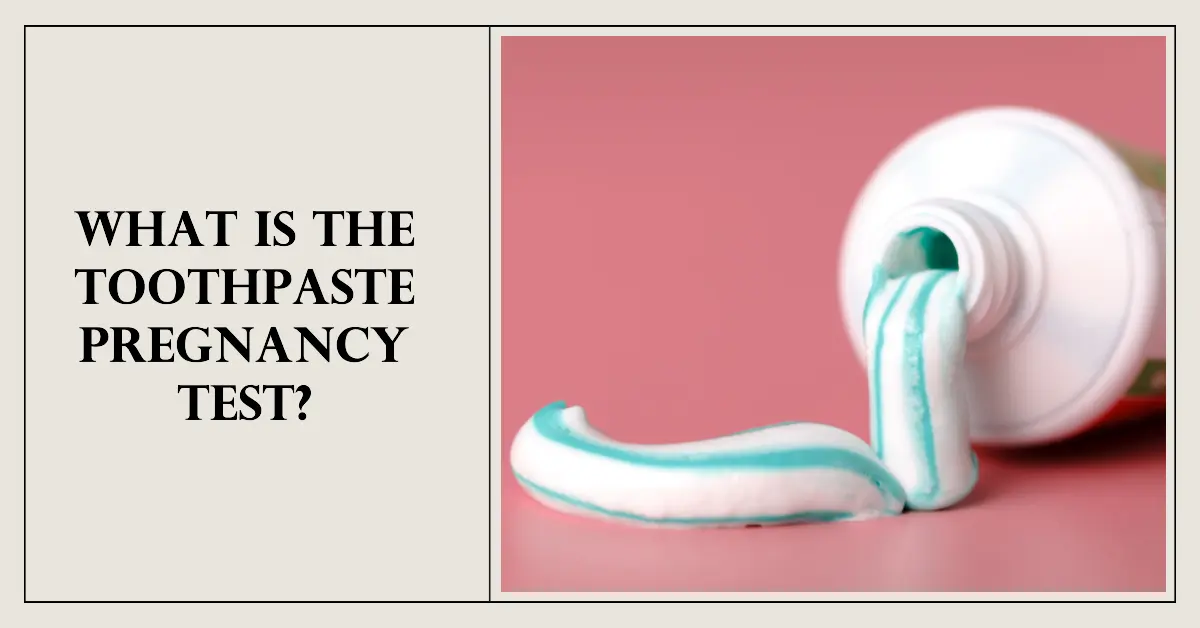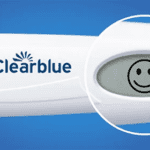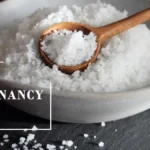
Have you ever heard of the Toothpaste Pregnancy Test? This peculiar method has gained attention as a DIY alternative to traditional pregnancy tests. Advocates claim that by combining toothpaste with urine, one can determine if they are pregnant or not. But does it actually work? In this article, we will delve into the details of the Toothpaste Pregnancy Test, examining its procedure, accuracy, and limitations. Join us as we uncover the truth behind this unconventional pregnancy test.
Related: 10 Reasons – Why do Cats Attack Pregnant Women?
What Is the Toothpaste Pregnancy Test?
The Toothpaste Pregnancy Test is a home-based method that supposedly detects pregnancy by combining toothpaste and urine. According to proponents, specific chemical reactions occur when toothpaste comes into contact with the hormones present in pregnant women’s urine, resulting in changes in the appearance of the toothpaste. While it may sound intriguing, it is crucial to approach this test with caution and skepticism.
Related: When Do I Have to Stop Flying During Pregnancy? (Policies on 20 Global Airlines)
How Does the Toothpaste Pregnancy Test Work?
In principle, the foaming of toothpaste could potentially occur due to the presence of acidic compounds in the urine of a pregnant woman. However, it’s important to note that the acidity of urine from a non-pregnant individual could have the same effect, making this method intriguing but not reliable. The reason behind this lies in the production of human chorionic gonadotropin (hCG) when a woman is pregnant. This hormone, composed of amino acids, is what traditional home pregnancy tests and medical professionals detect in urine and blood samples. On the other hand, toothpaste contains a chemical called calcium carbonate, which serves as an abrasive for teeth cleaning. When the calcium carbonate interacts with the amino acids of hCG in urine, it theoretically has the potential to generate carbon dioxide gas, resulting in foaming.
Related: Salt Pregnancy Test: Myth or Miracle?
Procedure for the Toothpaste Pregnancy Test
To conduct the Toothpaste Pregnancy Test, you’ll need the following materials:
- White toothpaste (avoid using gel-based or colored toothpaste)
- A clean container or cup
- Urine sample (preferably first-morning urine)
Follow these steps to perform the Toothpaste Pregnancy Test:
- Collect a small amount of urine in a container or cup.
- Squeeze out a portion of white toothpaste onto a separate plate or dish.
- Add the urine sample to the toothpaste and mix them together.
- Observe any changes in the mixture’s appearance over the next few minutes.
Related: 10 Reasons – Why do Cats Attack Pregnant Women?
What Do the Results Indicate?
Advocates of the Toothpaste Pregnancy Test claim that certain changes in the mixture’s appearance can indicate pregnancy. Let’s explore the potential outcomes and their interpretations:
- No Change: If the toothpaste and urine mixture remains unchanged, it is often interpreted as a negative result, suggesting that pregnancy is unlikely. However, it is essential to remember that this test is not scientifically proven and may yield inaccurate results.
- Fizzing or Foaming: Some individuals report seeing fizzing or foaming in the mixture. This reaction is often regarded as a positive indication of pregnancy. However, it is crucial to note that this test lacks scientific validity, and its accuracy is questionable.
- Color Change: Another claim associated with the Toothpaste Pregnancy Test is that the mixture may change color, usually to a bluish hue. Proponents argue that this alteration signifies a positive result. Nevertheless, it is crucial to emphasize that this test should not be relied upon as a definitive determination of pregnancy.
Related: The Benefits of Skin-to-Skin Contact with Newborn
Limitations and Accuracy of the Toothpaste Pregnancy Test
While the Toothpaste Pregnancy Test may appear intriguing, it is essential to recognize its limitations and question its accuracy. Here are some critical factors to consider:
- Lack of Scientific Validity: The Toothpaste Pregnancy Test has not undergone rigorous scientific testing or validation. Its effectiveness in detecting pregnancy has not been proven through clinical trials or medical research.
- Subjectivity and Interpretation: The interpretation of the test results largely relies on personal judgment. The changes in the toothpaste and urine mixture can vary significantly among individuals, making it challenging to establish consistent and reliable indicators of pregnancy.
- False Positives and Negatives: Due to the lack of scientific evidence, the Toothpaste Pregnancy Test may produce false positive or false negative results. Relying solely on this method for pregnancy confirmation can lead to confusion and misinformation.
- Other Variables: Various external factors, such as the composition of the toothpaste, the concentration of hormones in urine, and the timing of the test, can influence the results of the Toothpaste Pregnancy Test. These variables further contribute to the test’s lack of accuracy and reliability.
Related: From Flat to Fabulous: When Your Bump Will Start to Show During Pregnancy
Note: Although it might be fun to try a toothpaste pregnancy test, it's important to know that the results may not be accurate. If you want to be sure whether you're pregnant or not, it's best to use a home pregnancy test.
Conclusion
The Toothpaste Pregnancy Test may seem like an intriguing and cost-effective alternative to traditional pregnancy tests. However, it is important to approach this method with skepticism and awareness of its limitations. The lack of scientific validation and the potential for false results make it unreliable for confirming pregnancy. For accurate and reliable results, it is advisable to consult a healthcare professional and rely on medically approved pregnancy tests. Remember, when it comes to determining pregnancy, it is best to prioritize scientifically proven methods over DIY alternatives.
Related: 10 Natural Ways To Check Pregnancy At Home
Frequently Asked Questions (FAQs)
Is the Toothpaste Pregnancy Test scientifically proven?
No, the Toothpaste Pregnancy Test lacks scientific validation and has not been proven as a reliable method for detecting pregnancy.
Can the Toothpaste Pregnancy Test replace traditional pregnancy tests?
No, traditional pregnancy tests, such as urine or blood tests, are more accurate and dependable in determining pregnancy. It is recommended to consult a healthcare professional for an accurate diagnosis.
What causes the changes in the toothpaste and urine mixture?
The changes in the mixture observed during the Toothpaste Pregnancy Test are likely due to the interaction between the toothpaste ingredients and the components present in urine. However, the exact chemical reactions and their relation to pregnancy are not scientifically understood.
Are false positives or false negatives common with the Toothpaste Pregnancy Test?
Yes, false positives and false negatives are possible with the Toothpaste Pregnancy Test due to its lack of scientific validation. It is not a reliable method for confirming pregnancy.
Can the Toothpaste Pregnancy Test be used as an early pregnancy detection method?
Early pregnancy detection requires sensitive tests that can detect low levels of hormones. The Toothpaste Pregnancy Test is not designed for early detection and should not be relied upon for such purposes.
Are there any risks or dangers associated with the Toothpaste Pregnancy Test?
The Toothpaste Pregnancy Test poses no known risks or dangers to health. However, it is crucial to remember that it is not a scientifically proven method and may lead to inaccurate results, potentially causing confusion or unnecessary anxiety.












